ROBERT WILLIAMS BUCHANAN (1841 - 1901)
|
ROBERT WILLIAMS BUCHANAN (1841 - 1901) |
|
|
|
|
|
|
|
|
WAYSIDE POSIES |
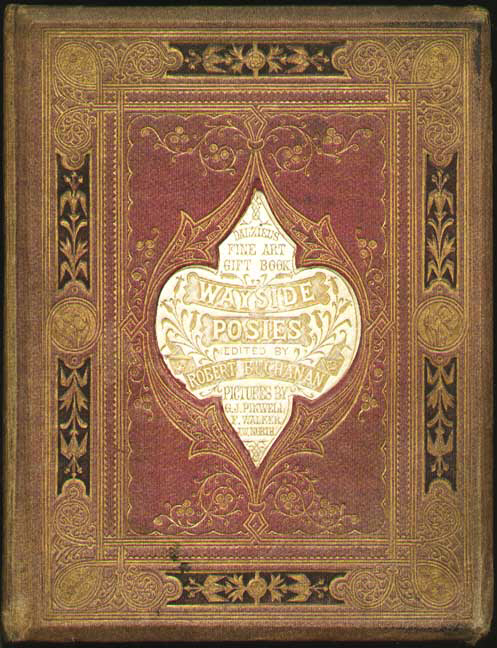 |
||||||||
|
Wayside Posies: Original Poems of the Country Life was a Christmas gift-book, published by George Routledge & Sons in December 1866. The book was illustrated by G. J. Pinwell, J. W. North and Frederick Walker, engraved by the Brothers Dalziel, and was edited by Robert Buchanan. Wayside Posies contains 37 anonymous poems, most of which are probably the work of Buchanan himself. A review of the book in The Examiner of 8th Decmber, 1866 contains the following: “On the whole, this handsome gift-book is entitled to a special rank for its originality, the verse being all new, and, barring a certain proportion of rubbish (like the poem called ‘The Goose’), sufficiently agreeable. The greater part of it is understood to be by Mr Robert Buchanan, who contrives in a few prefatory lines to display several of those defects of taste which are likely to impede his progress in the world. He succeeds less in short pieces of occasional verse than in pathetic narrative, but there is much here that is delicately conceived and gracefully expressed.” This is the Preface: |
||||||||
 |
||||||||
|
The only poem mentioned by Buchanan, ‘Reaping’, was the work of William Freeland, and was later published in his collection, A Birth Song: And Other Poems (Glasgow: James Maclehose and Sons, 1882). Of the other poems in the collection, I have not found any evidence to link any of them to other poets, but, of course, this is hardly proof that they all belong to Buchanan. So, the selection below are those poems which are definitely Buchanan’s, plus a few more which for various reasons, may possibly be Buchanan’s. Of course, apart from ‘Reaping’, the whole collection is most probably due to Buchanan, but I think more evidence is needed. All the poems from Wayside Posies were later included (still anonymous) in another Routledge gift book, Picture Posies, published in 1874. Wayside Posies is available to download from the Internet Archive in a variety of formats, or can be accessed here. |
||||||||
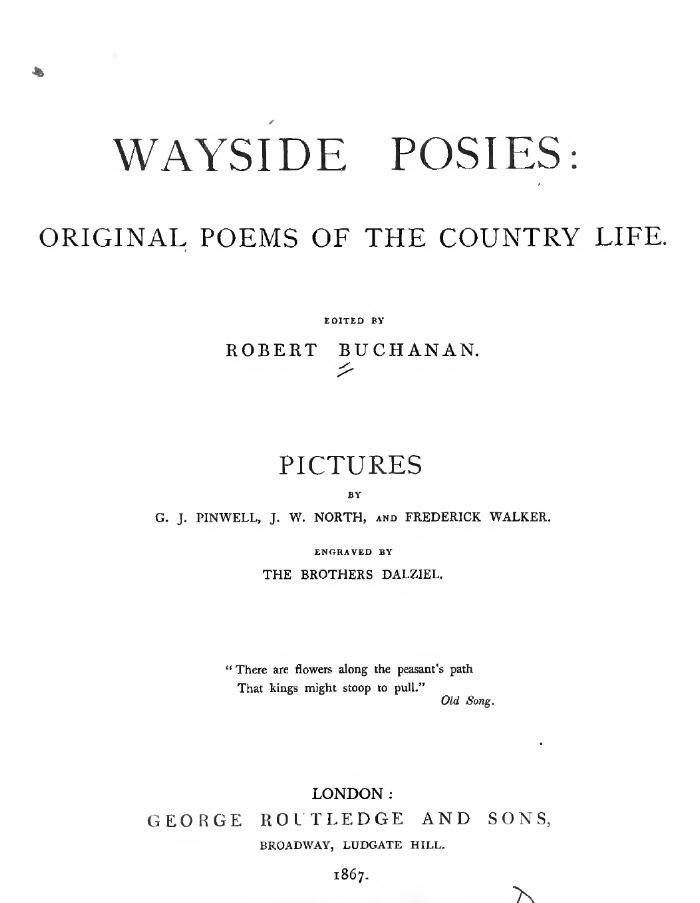 |
||||||||
|
CONTENTS.
1. The Shadow. A Boy’s Thought. 2. The Bit o’ Garden. [Sometimes, the internet can be a wonderful thing. I put the title into google and up popped this - Buchanan’s manuscript of ‘The Bit o’ Garden’. |
||||||||
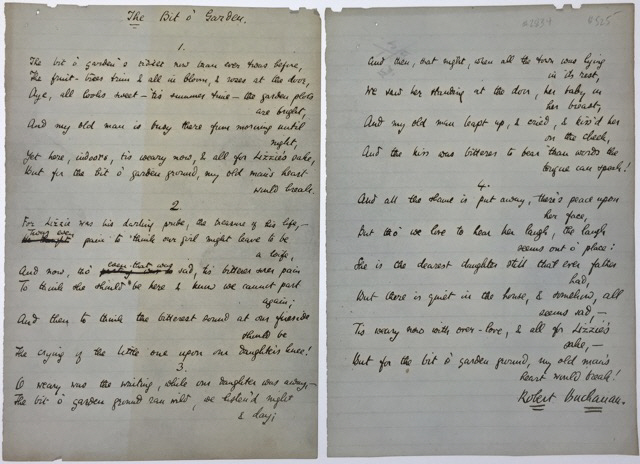 |
||||||||
|
It was on the Nudelman Rare Books site and is described thus: “Buchanan, Robert- ALS Written in fountain pen by Buchanan on two ruled octavo sheets (in landscape form), his poem, "The Bit o' Garden," with two corrections from what appears to be a last manuscript before submitting poem for publication. The poem appeared in Buchanan's book in 1867, Wayside Posies, published by George Routledge. The poem appears in the book with the complete copy as written out here by Buchanan in holograph form, with both corrections appearing in print. Very good. Scarce. Price: $525.00 Item #2834” Unfortunately, a little too expensive for my pocket, so the picture will have to suffice.]
THE bit o’ garden’s tidier now than ever ’t was before; For Lizzie was his darling pride, the treasure of his life: Oh! weary was the waiting while our daughter was away; And all the shame is put away: there’s peace upon her face; |
||||||||
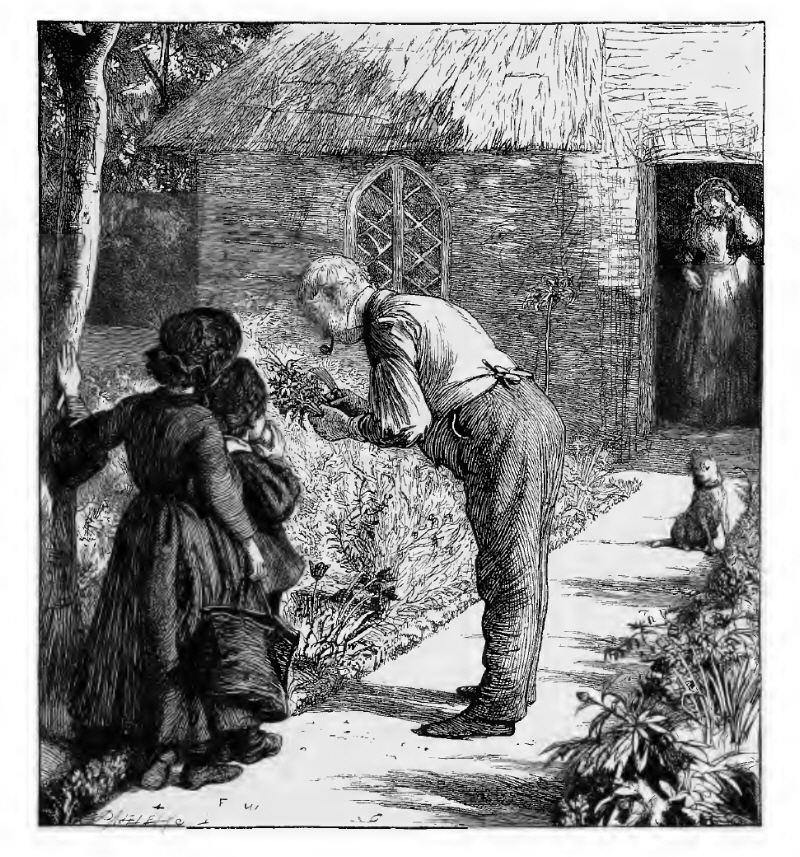 |
|
3. ‘At the Grindstone; or, a Home View of the Battle-field’. [This poem is attributed to Buchanan in three other books, all published in America: Forty Friday Afternoons by Seymour Eaton and Florence A. Blanchard (Boston and Chicago: New England Publishing Co., 1892): the poem (by Robert Buchanan) is listed with others under the heading, ‘Battles in Verse’ on page 23. An Index to Poetry and Recitations, edited by Edith Granger, A. B. (Chicago: A. C. McClurg & Compnay, 1904) lists 41 poems by Buchanan, including ‘At the Grindstone; or, a Home View of the Battle-field’. Of course, this may just mean that the poem was wrongly attributed to Buchanan in the first place as the editor of Wayside Posies and the mistake was then repeated. Still, you can’t expect every title in google to turn up the original manuscript.]
OR, A HOME VIEW OF THE BATTLE-FIELD.
GRIND, Billie, grind! And so the war’s begun? Why, I’m a kind of radical, and saw There was our Johnie, now!—as kind a lad None of your fighting sort, but mild and shy, And it was pleasant for a time to see He went! he went! he could not choose but go! A lad that should have been at school or play! Mark that! A bullet from a murderous gun What, call that war! to slay a helpless child Bah! Frenchman, Turk, or Russian—all alike! |
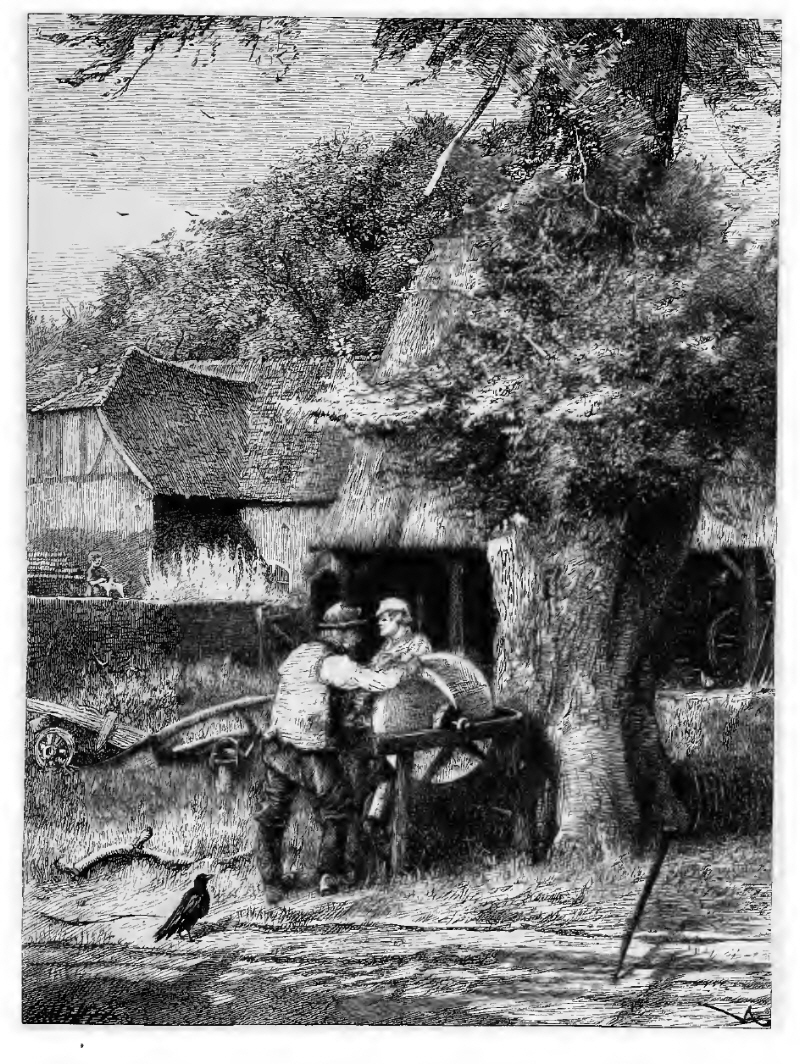 |
|
4. Shadow and Substance. [I’ve found no Buchanan connection to this poem, but in a letter from Buchanan to the Brothers Dalziel of May 22nd, 1867, he makes the following suggestion: “If you had by you any very fine pictures, & would send me proofs, I might find something by me to suit them; & that would save a little trouble.” This would have been for their final collaboration, North Coast, and other Poems, but the elaborate illustration for the rather thin two stanza poem, makes me wonder if the same procedure was used for Wayside Posies.]
THE sun is bright in the meadow, Her eyelids droop while she fishes, |
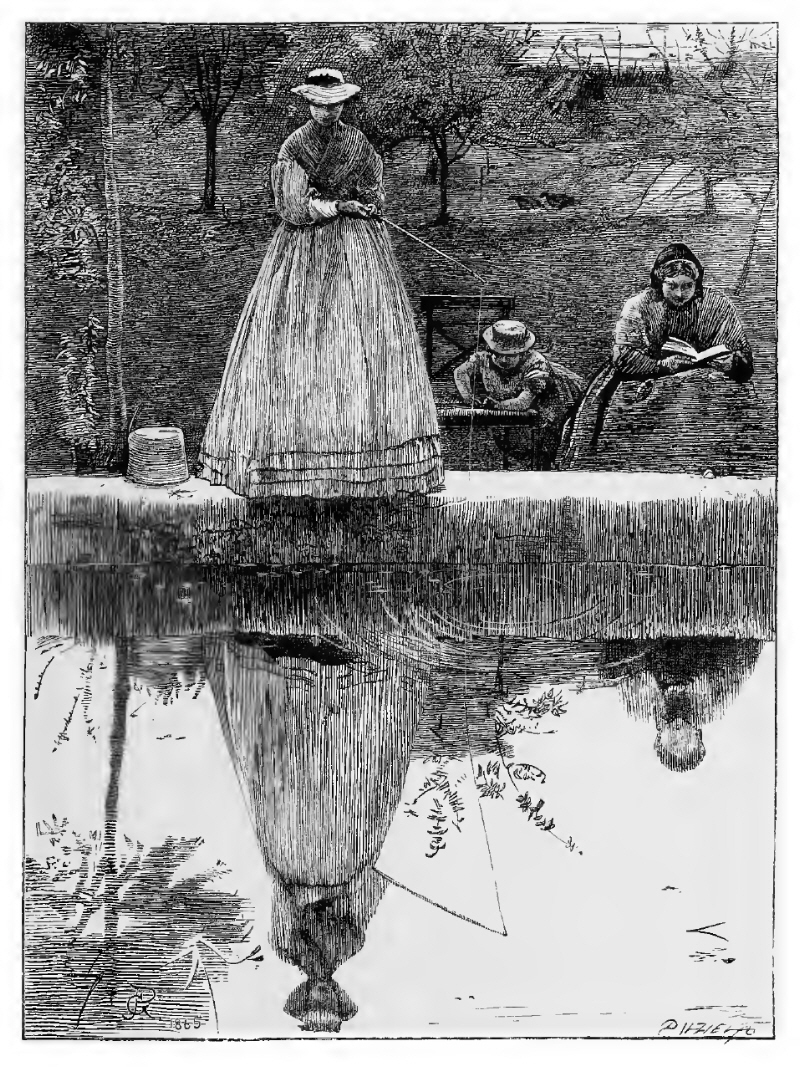 |
|
5. Afloat On The Stream. [’Afloat on the Stream’ is by Buchanan, sharing lines with ‘London Poems. VII. The River’ published in Temple Bar (September 1861): “Beyond those clouds, the ocean’s lips “Beyond those clouds the ocean’s lips “And looking down upon its face, The country in its harvest trance, “There, looking down upon its face, Yonder there spreads the harvest scene, |
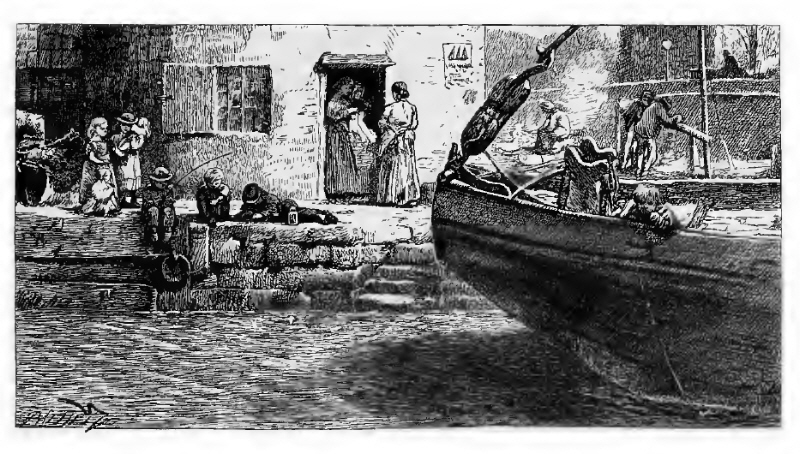 |
|
I. THE town upon the river-side, Here the black barges darken down Here, where the darkened sunlights fall And oft we launch our little boat, |
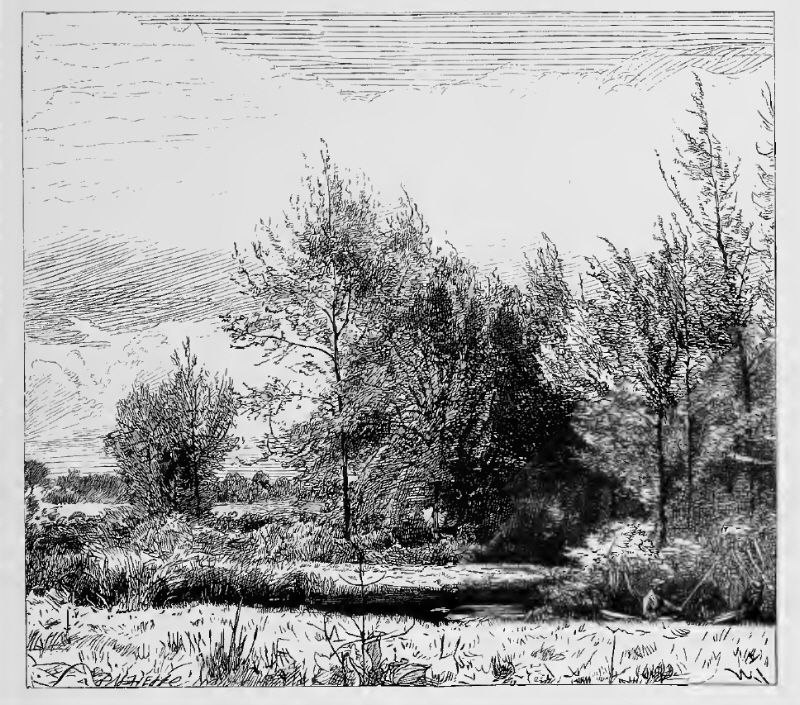 |
|
II. Hither the sunshine cometh not, There, looking down upon its face, Yonder there spreads the harvest scene, And all around are glimpses sweet |
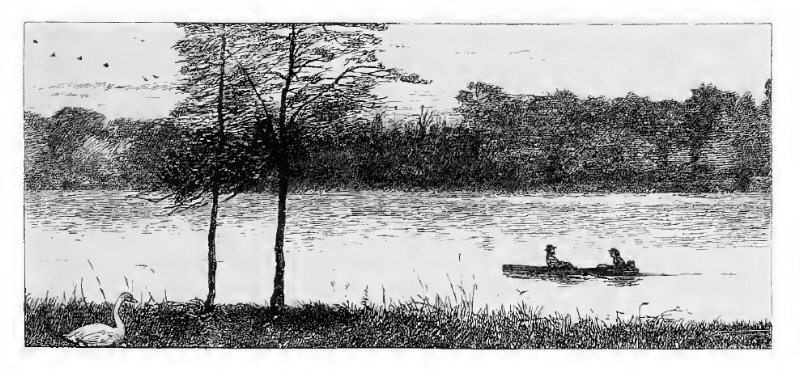 |
|
III. Downward at eventide go we: Past little villages we go, Then silent in our little boat, The heart beats quick, the bosom sighs; ___
6. School. 7. On the Shore. [‘On The Shore’ is by Buchanan and was subsequently published as ‘Sea Wash’ in Ballads of Life, Love, and Humour (1882).]
WHEREFORE so cold, O day, Wherefore, O fisherman, Wherefore so still, O sea, |
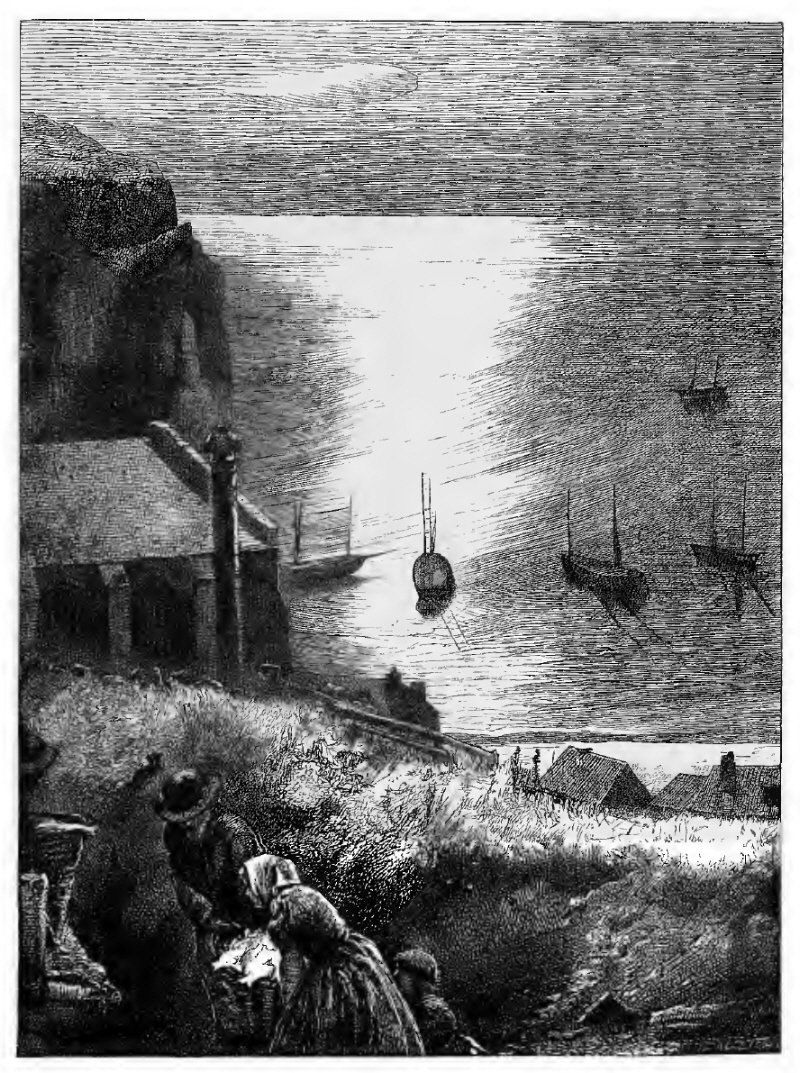 |
|
8. The Swallows. [‘The Swallows’ is by Buchanan and was reprinted in Volume 2 of the 1874 King edition of The Poetical Works, Ballads of Life, Love, and Humour (1882) and the ‘London Poems (1866-70)’ section of the 1884 Chatto & Windus Poetical Works.] |
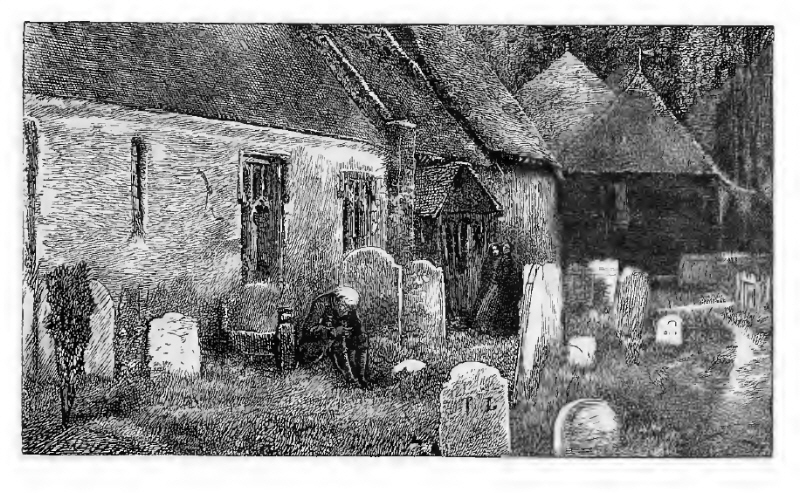 |
|
I. O CHURCHYARD in the shady gloom, Thou holdest in thy sunless land And to the murmur that mine ears The cries keep on, the minutes pass, |
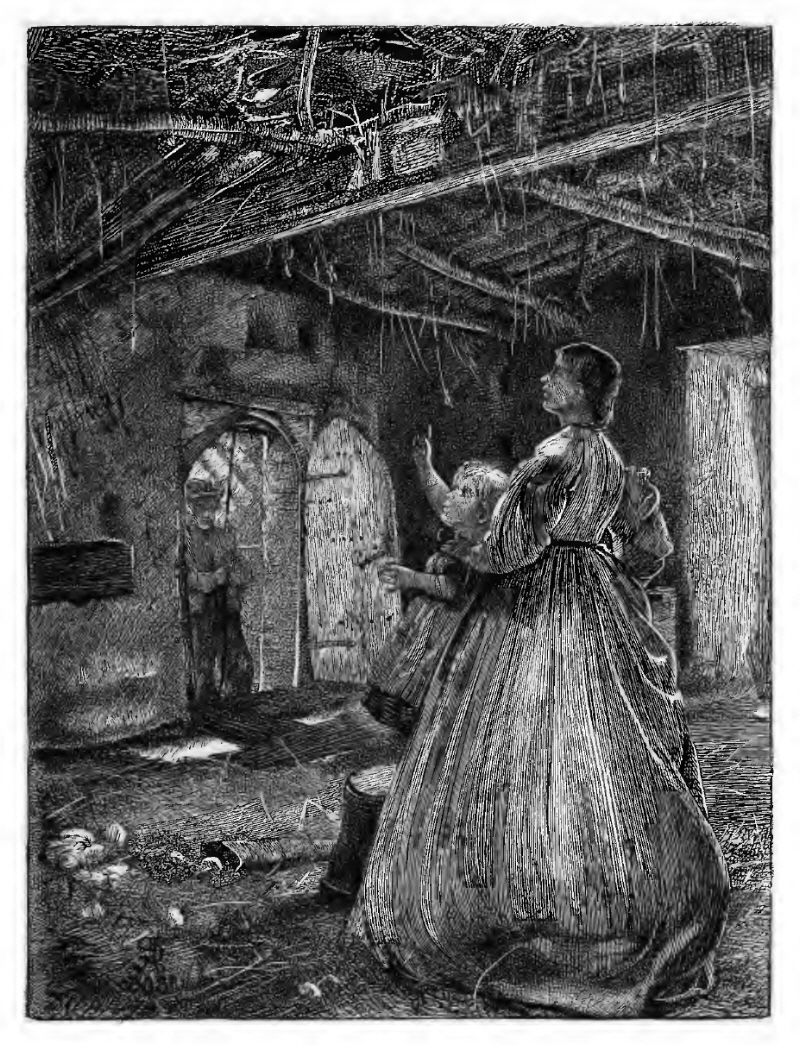 |
|
II. O churchyard in the shady gloom, Among thy grave-stones worn and old, While, burthened by the life we bear, For here, where stillness, death, and dream, ___
9. Hope. 10. Spring. 11. The Journey’s End. 12. Reaping. [‘Reaping’ is by William Freeland.] 13. King Pippin. 14. By The Dove-cot. 15. The Nutting. 16. The Visions Of A City Tree. 17. The Goose. _____
|
|
|
|
|
|
|